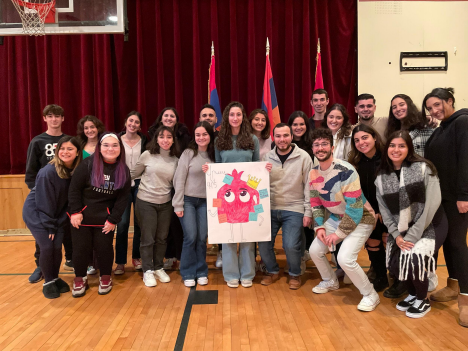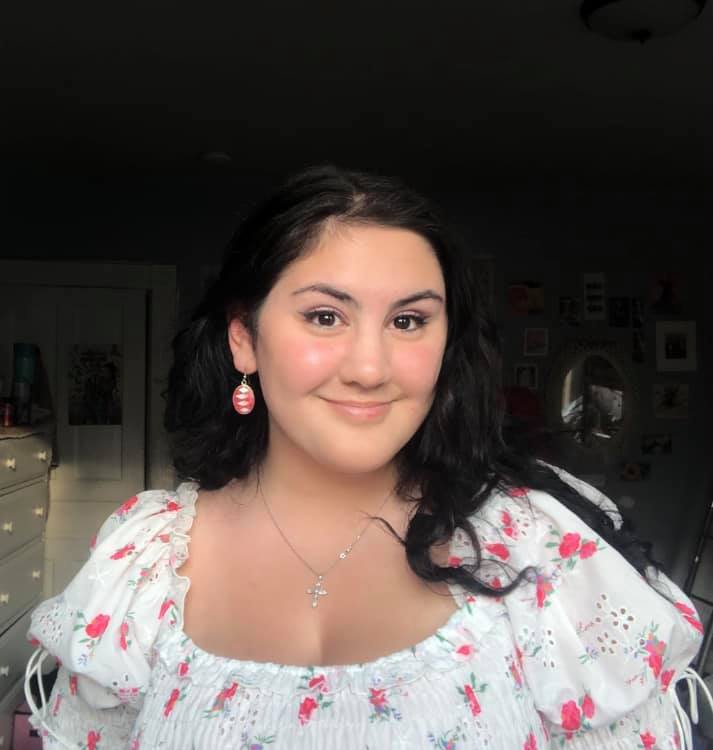
The AYF-ER’s Central Language Council’s first-ever Armenian Language Workshop was one of the most meaningful and enjoyable AYF experiences I’ve had. Having studied literature during my undergraduate years, I’m admittedly biased toward the topic of language, but the dialogue that took place throughout the workshop was also the first time in my life where I felt comfortable speaking openly about the anxieties and shame that can often accompany speaking Armenian as a diasporan. As was discussed during the program, fully developing our Armenian language skills as members of a primarily English-speaking American diaspora is undeniably challenging. Language immersion is next to impossible in most parts of the country, and for those of us who do not speak Armenian in the home due to one or both parents not being speakers, our opportunities to be in learning environments quickly diminish once we age out of Armenian Saturday (or daily) schooling. It is not surprising that many young diasporan Armenians today are left with impaired proficiency in the language, which is exacerbated by the implicit (or explicit) shaming of one another for being too “lazy” to commit to fluency. Most of us could agree that we often don’t feel like we speak “good enough” Armenian, and therefore are not “good enough” Armenians. Despite these feelings of shame being so commonplace, speaking openly about them continues to feel embarrassing and taboo.
The Armenian Language Workshop was the first time I’ve heard these ideas discussed and challenged. A common theme was emphasized across four lectures: that the more we make a habit out of speaking Armenian (errors and all), the more we are able to make it our own—a living, breathing language that can become a tool in our lives, rather than an end goal. Armenian language as a means, rather than an end. If we sanctify the Armenian language, thinking of it as a burden we must practice so that we can pass it down to the next generation, the pressure of perfection inhibits us from actually speaking it. The more that our embarrassment stops us from attempting to speak, the more we become unintentionally complicit in its endangerment. If we only feel ready to speak Armenian when we are perfectly fluent, how can we ever expect to speak it at all?
We spoke at length throughout the workshop about actionable ways to incorporate Armenian language into our lives—when we text our friends, write in our journals, gather to play sports. I genuinely believe in the hope of the workshop, that we as a diaspora are capable of committing to our beautiful language. The language of our grandfathers. The language of our home. I was particularly struck when I learned that the Armenian community of Lebanon, where my mother was born and where they now primarily speak the Western Armenian I was raised on, was initially populated by Armenians who spoke Turkish. As a community, the Armenians of Lebanon chose to commit to the practice of Armenian as their common tongue and were able to successfully revitalize and establish it as their default practice. In a good-hearted effort at inclusivity, many of our diasporan gatherings and activities default to the English language. What stops us from choosing to make any gathering of ourselves into an explicit learning environment? When I moved to Washington, D.C. about a year and a half ago, I found myself for the first time amongst a community of peers who purposefully chose to speak Armenian with one another as often as possible. Having been surrounded by others using the language, I have had the joy of watching my own comprehension and vocabulary improve tenfold. This experience proved to me that we are capable of creating our own immersion, encouraging and teaching one another our mother tongue as a collective. We don’t just owe that to our grandparents or our future children; we owe it to ourselves. We deserve to feel free in speaking the language that is our inheritance, without an ounce of embarrassment! Lecturer Rupen Janbazian made the wonderful point that many native English speakers don’t even speak English perfectly. I hope to continue pushing myself and those around me to leap out of our comfort zones and dare to speak.
During my 2019 visit to Lebanon with the Summer Youth Academy program in Antelias, we were given a tour of Vana Tsayn (Voice of Van), the local Armenian radio station. I remember the staffer who adamantly encouraged us to learn and speak Armenian. What she said to us, so earnestly and tenderly that I could never forget it, is the message I would like to conclude with. “The love of my life is my language,” she said. I am confident that it can be all of ours, too, if only we choose it.



Thank you Lorie. Very precise and right to the point. You hit it on the nail. I have been advocating this issue since I cam to the US 50 years ago, and sending the message through the air on the Armenian Heritage program from Lowell Massachusetts. on few occasions I received a variety of negative responses. I am so glad you brought up this issue and hopefully many Armenians will read it and follow suit. Again, I envy your courage and commend you for a very well written HOT article. Thank you.